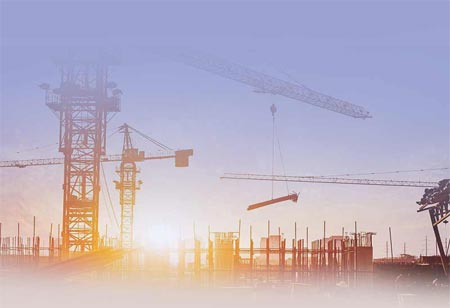Thank you for Subscribing to Construction Business Review Weekly Brief
Specials
- MEP Canada
- Kitchen and Bath
- Decking Canada
- Architectural Glass Europe
- MEP APAC
- Construction Saudi Arabia
- German Apartment and Condominium Contractors
- Construction Law APAC
- Outdoor Construction
- Foundation Construction Canada
- Building Sealing Solutions Europe
- Apartment and Condominium Contractors Canada
- Cold Storage Construction APAC
- Precast Concrete Europe
- Construction Staffing Europe
- Pre-Construction Services
- Flooring System APAC
- Scaffolding Canada
- Swimming Pool Construction Canada
- Construction Management Canada
- Dummy
- Building Restoration and Maintenance Canada
- Residential Construction
- Concrete Canada
- Construction Cladding Europe
- Construction Cladding APAC
- Concretes, Aggregates and Construction Materials APAC
- Concretes, Aggregates and Construction Materials Europe
- Commercial Contractors Europe
- Commercial Contractors APAC
- Cold Storage Construction Canada
- Flooring Systems Europe
- Construction Management APAC
- Landscaping Canada
- Construction Coating Europe
- Construction Tech Startups Europe
- Insulation Services Europe
- Mechanical Contractor Canada
- Mould Remediation and Testing Europe
- Swimming Pool Construction APAC
- Construction Engineering Services
- Mechanical Electrical and Plumbing
- Roofing Systems Europe
- Architectural Glass APAC
- Startups APAC
- Forensic and Owners Representative
- Flooring System
- Waterproofing APAC
- Wall Systems
- Safety and Compliance Europe
- Construction Bidding and Auctions
- Modular and Prefab Construction
- Architectural Glass
- Construction MENA
- Construction Demolition and Recycling Europe
- Modular Construction Europe
- Construction Interiors
- Steel Building APAC
- HVAC
- Doors and windows
- Modular Construction APAC
- Insulation, Coating and Waterproofing
- Building Information Modeling APAC
- Sustainable Construction APAC
- Building Restoration and Maintenance
- Commercial Contractors
- Specialty Construction
- Construction Engineering Canada
- Construction Engineering MENA
- Modular Construction Canada
- Roofing and Siding Systems
- Construction Latam
- Workforce Management and Staffing
- Roofing Systems APAC
- Construction Consulting
- Steel Building Europe
- Construction Demolition and Recycling APAC
- Safety and Compliance APAC
- Concretes, Aggregates and Materials
- Construction Cladding
Modular Construction Technology is Shaping the Future of the Industry
Modular construction technology enhances efficiency and sustainability by enabling off-site fabrication, integrating advanced tools like BIM and CAD, and leveraging automation, smart systems, and innovative materials.

By
Construction Business Review | Monday, September 30, 2024
Stay ahead of the industry with exclusive feature stories on the top companies, expert insights and the latest news delivered straight to your inbox. Subscribe today.
Modular construction technology enhances efficiency and sustainability by enabling off-site fabrication, integrating advanced tools like BIM and CAD, and leveraging automation, smart systems, and innovative materials.
FREMONT CA: Modular construction technology is reshaping the construction industry by offering a faster, more efficient, and sustainable approach to building. Unlike traditional methods, where structures are built on-site, modular construction involves fabricating components or modules off-site in controlled factory environments. These modules are then transported and assembled at the final location, significantly reducing construction time and waste. This cost-effective method allows for higher quality control, enhanced safety measures, and the flexibility to incorporate innovative designs.
BIM and CAD Software in Modular Construction
Modular construction companies increasingly utilise Building Information Modelling (BIM) and Computer-Aided Design (CAD) software for various purposes. These tools assist in creating detailed 3D models of buildings, designing individual components, and coordinating manufacturing and assembly processes. The advantages of BIM and CAD in modular construction include enhanced accuracy, better visualisation, and improved collaboration across all project phases.
Automation and Robotics in Manufacturing
The integration of robotics and automation in module manufacturing significantly enhances precision and productivity. Robots, for instance, are employed to perform tasks such as cutting, welding and assembling components, completing these tasks more rapidly and accurately than manual labour. Automation has become a vital component of modular construction, optimising production speed and quality.
GPS and Sensors for Transportation
GPS and sensors play a critical role in the logistics and transportation of modular components. These technologies help track the location and condition of modules as they move from factories to construction sites, optimising delivery routes and ensuring smooth transport. Companies utilise sensors to monitor modules during transit, improving operational efficiency.
Smart Home Technology Integration
Smart home technology is increasingly being integrated into modular buildings, offering numerous benefits to occupants. These include convenience features such as adjusting thermostats, turning lights on or off and locking doors remotely.





